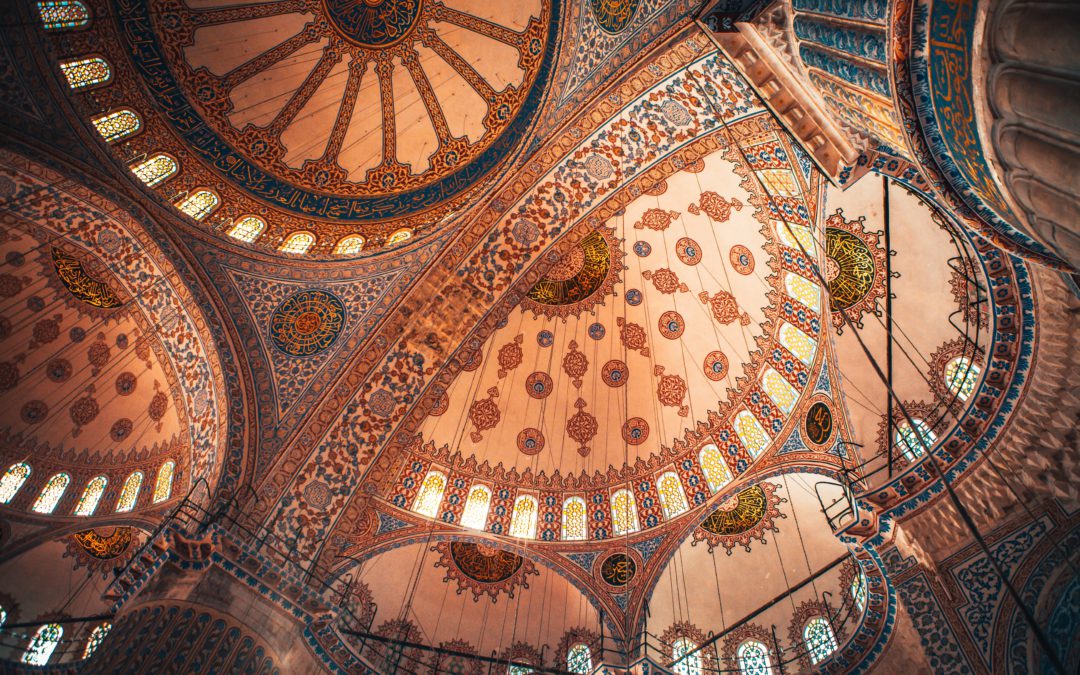An Inspiring, Uniting Force
What role does is art play in our lives as Muslims? Is it a mere distraction or is it the soul of a society? Depending on where you are situated politically, you will find very dramatically different answers to that question.
As someone who studied the arts, I remember one teacher in particular who said “Do you watch television? Do you listen to the radio, to music? Do you read nonfiction books? Do you enjoy fashion or high-end food? All of these things are art’. Imagine a life without art. A colorless, soundless, shapeless, tasteless abyss of what we would call “living”.
Life would surely be a lot less interesting without the color and richness that art brings to our lives. So how important is it really? The arts play a valuable role in our communities whether it be to unify, educate, or just appreciate its beauty. Unfortunately, there is a cutting out or silencing of the arts in Islamic communities for fear of it being haram. Though haram art certainly exists, there is space for the halal. There must be, maybe adding a little color would help hold onto our youngsters, our poets, our innovative thinkers. We must make space for them.
The importance of the arts has been statistically and scientifically supported throughout the century. In a paper by James S. Catterall at the University of California Los Angeles, he summarizes the findings of four studies done that examine the academic and civic behavior outcomes of teenagers and young adults who have engaged deeply with the arts. He found that Students with arts involvement show better academic outcomes. Students with few or no arts credits were five times more likely not to graduate than students with many arts credits. Students with high arts involvement are more likely to be in honor societies. In another paper, the President’s Committee on the Arts and the Humanities Outcomes found students involved with the arts had higher student achievement, student motivation, and engagement, problem-solving skills, social competencies.
In his book, Arts with the Brain, Eric Jensen suggests that the influence of the arts is far wider and deeper than simply improved letter grades. “The arts enhance the process of learning. The systems they nourish, which include our integrated sensory, attentional, cognitive, emotional, and motor capacities, are, in fact, the driving forces behind all other learning” (Jensen, 2001).
Islamically speaking, the arts have been a uniting force, honoring many different cultures in combination with the praise and love for Allah (SWT). Islamic art is inevitably subject to a wide range of regional and even national styles and influences as well as changes within the various periods of its development. It is all the more remarkable than that, even under these circumstances, Islamic art has always retained its intrinsic quality and unique identity. Just as the religion of Islam embodies a way of life and serves as a cohesive force among ethnically and culturally diverse Muslims.
The arts have been a profound way to reach our community since the prophet’s time. The work of Hassan Ibn Thabit was instrumental in spreading the message of Muhammad (PBU), as poetry was an important part of Arab culture and expression. The work and words of Hassan Ibn Thabit are still regarded as the most beautiful in praise of Muhammad (PBU). Muhammad (PBU) was so happy with Hassan Ibn Thabit that he ordered to establish and construct for him a minbar-pulpit for him to stand upon when he delivered his poetry. Muhammad (PBU) prayed for him saying that the Angel Gabriel will support you as long as you preach the message of Allah and defend His Prophet.
The concept of ancient poetry as a means to reach the people can be translated today to mass media. With so much negative and/or content that is unethical, unproductive, it is needed no more than ever for Muslims to encourage each other to create content that will benefit humanity, calling and supporting those on the straight path.
Surely there must be more appreciation for the beauty and possibility that an artist holds in their hands. It is possible to create beautiful halal art. Not only is it possible, but it is also needed. Our community needs content to uplift, inspire and grow.
Encourage the arts whether it be movement, visual art, film, music, it has the power to educate people about almost anything. It can create awareness and present information in a way that could be absorbed by many easily. In a world where there are those who don’t even have access to good education; art makes education an even greater equalizer of society. And what is more Islamic than spreading beautiful messages that educate?

